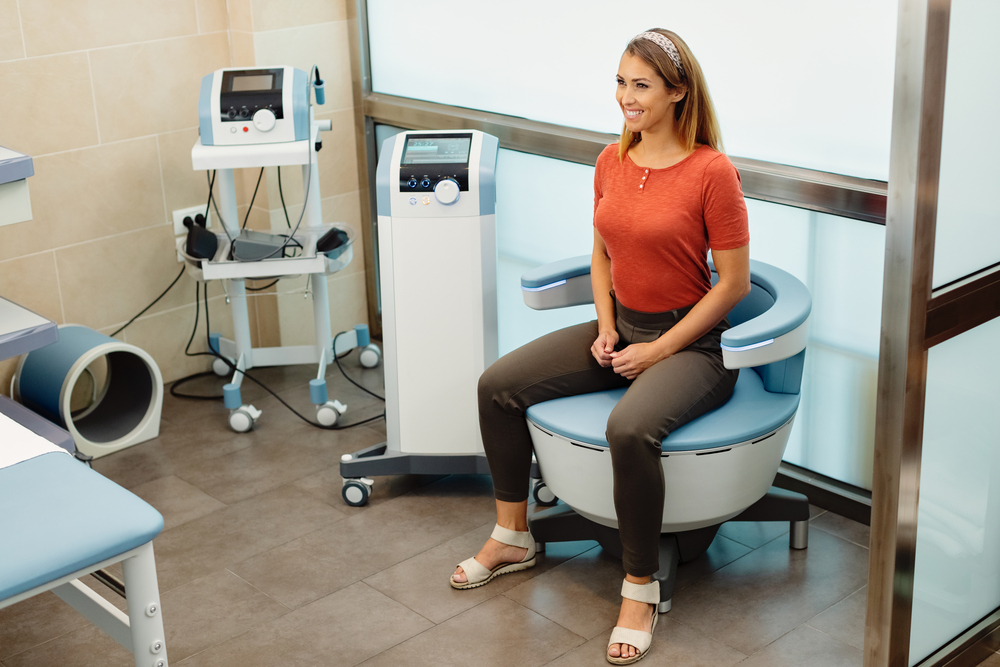Pelvic Muscle Rehabilitation That South Bend Patients Turn to for Help
Pelvic floor muscle rehabilitation isn’t really the kind of thing you discuss over a latte. In fact, it’s probably not the preferred conversational topic, period. After all, pelvic issues such as premature ejaculation, fecal incontinence and bladder incontinence that require this particular remedy, aren’t big crowd-pleasing subjects. So what are pelvic muscle rehabilitation South Bend recipients to do? Hide in shame? No! And while maybe you won’t want to shout about this helpful solution while catching a game at the ballpark, pelvic muscle rehabilitation is worth celebrating for those who’ve received its benefits.
Benefits of Pelvic Muscle Rehabilitation for South Bend Recipients
While it may not be a conversation piece for most, pelvic muscle rehabilitation is worth sharing for those who have experienced the pain, discomfort and embarrassment often associated with pelvic-floor muscle disorders and have come out on the other side pain-free–especially with others in a similar predicament.
Generally, pelvic muscle disorders include:
- Pelvic Organ Prolapse
- A condition where pressure from the bladder, bowels and uterus compress the vagina and create an actual bulge within the vaginal canal.
- Urinary Incontinence
- A condition in which it is difficult or impossible to control the bladder.
- Fecal Incontinence
- A condition in which it is difficult or impossible to control the bowels.
- Premature Ejacultation
- This condition affects millions of men as one of the most common male sexual disorders.
At Urology Associates of South Bend, we have helped endless patients with pelvic muscle rehabilitation. The potential benefit in treating and improving the disorders listed above (and others) is demonstrated in the outcome of a better, more comfortable quality of life.
What Does Pelvic Muscle Rehabilitation Actually Mean?
When we discuss pelvic muscle rehabilitation, we are referring to modalities that can help correct pelvic disorders, such as those previously mentioned. This can include:
- Physical Therapy

- This usually includes special exercises designed to strengthen the pelvic floor muscles. One of the most common approaches is Kegel exercises. A urologist will instruct you to tighten your pelvic floor muscles for a few seconds and then release for several repetitions. The goal is to try to work up to ten-second intervals, repeated 10 times a day.
- Biofeedback
- This method of pelvic muscle rehabilitation relies on the use of small sensors to assess bladder and bowel activity. The information biofeedback provides helps a physical therapist and/or urologist determine the best course of treatment.
- Behavioral Therapy
- This form of therapy is used as an accompaniment to other forms of pelvic floor muscle training. It involves working with an individual in resolving any potential psychological conditions that may contribute to the presence or severity of a pelvic floor muscle disorder.
- Posterior Tibial Nerve Stimulation
- PTNS is used to activate the nerves through a process similar to acupuncture.
- Botox Injections
- This treatment method is particularly effective when applied to the urethra and InterStim to address incontinence.
Could You Benefit from Pelvic Muscle Rehabilitation?
If you experience bladder or fecal incontinence, premature ejaculation, pelvic organ prolapse or have pain and discomfort in the pelvic floor area, you may benefit from pelvic muscle rehabilitation. At Urology Associates of South Bend, we routinely address problems associated with pelvic-floor muscle disorders by utilizing the most advanced, specialized methods of rehabilitation. Our urologists have years of education, experience and familiarity with a range of innovative treatment techniques.
For more solutions regarding pelvic muscle rehabilitation that South Bend residents choose, call us today at (574) 234-4100 or click here to schedule a consultation.
Request an Appointment
Address:
6301 University Commons, Suite 350
South Bend, IN 46635
Phone:
(574) 234-4100
Fax:
(574) 282-1739
